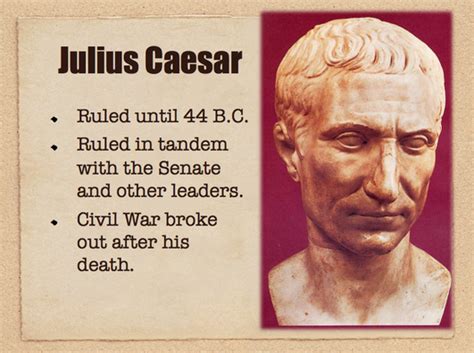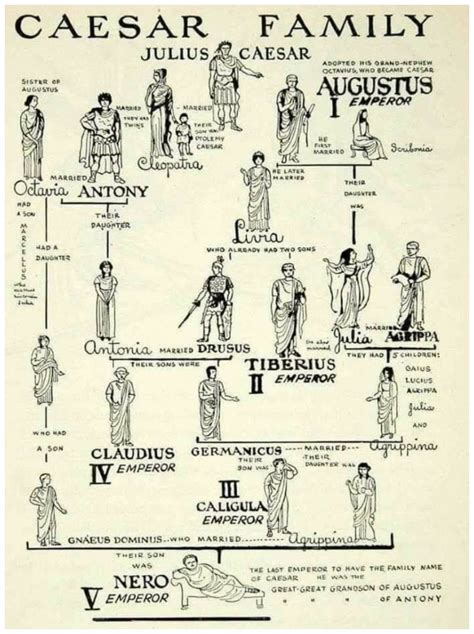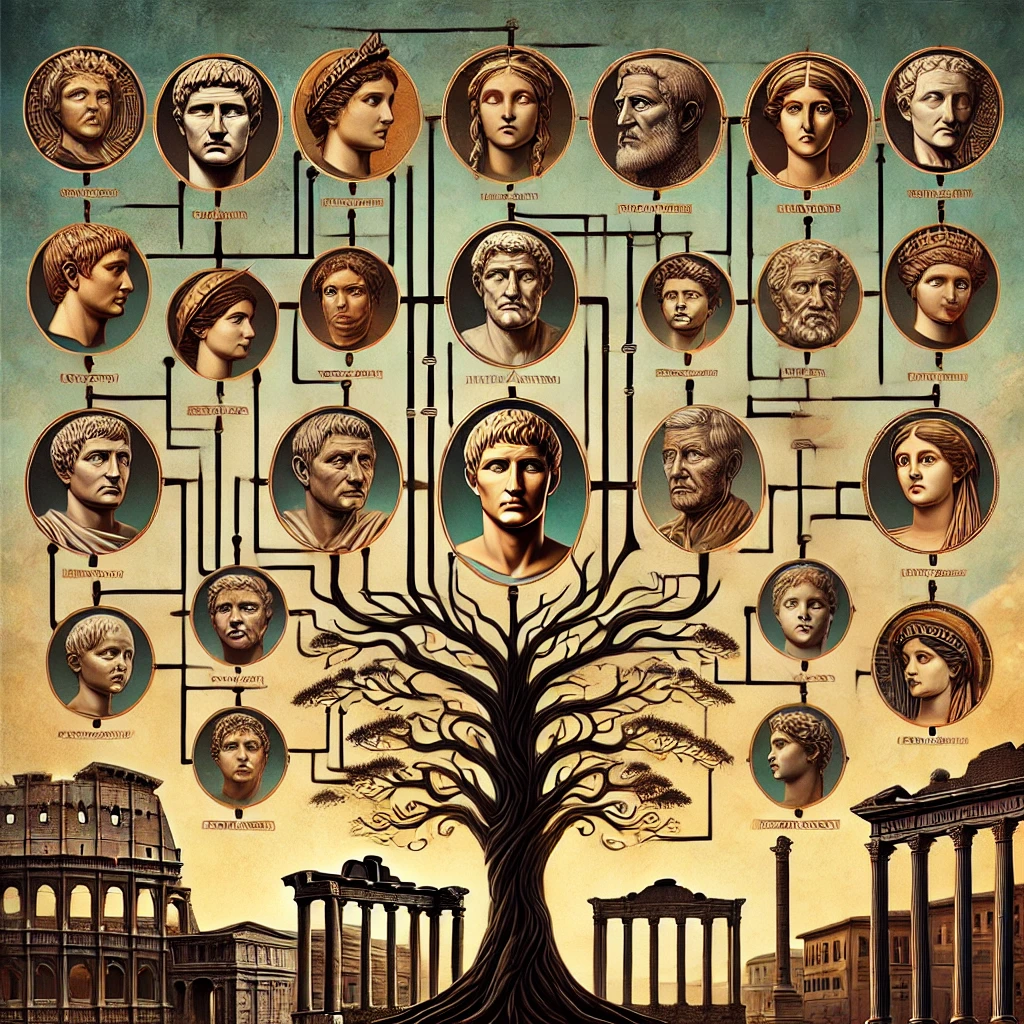The question of whether Julius Caesar has any living descendants has captivated historians and the public for centuries. This article delves into the fascinating world of ancient Roman genealogy, exploring the historical evidence, challenges in tracing lineages, and modern claims of descent from the famous general and statesman. We’ll examine Caesar’s known family tree, the impact of adoption in Roman society, and the reliability of DNA testing in establishing such ancient connections. Join us on this intriguing journey through time as we attempt to unravel the mystery of Julius Caesar’s potential living descendants.
Julius Caesar, one of history’s most iconic figures, continues to intrigue us with questions about his legacy. While his political and military achievements are well-documented, the fate of his bloodline remains a subject of debate and speculation. This article aims to shed light on the complex issue of Caesar’s potential living descendants, examining historical records, cultural practices of ancient Rome, and contemporary claims. We’ll explore the challenges faced by genealogists and historians in tracing lineages over two millennia, and discuss the role of modern genetic testing in potentially resolving this enduring mystery. By investigating this topic, we gain insight not only into Caesar’s family but also into the broader context of Roman society and the enduring fascination with ancestral connections to historical figures.
The Legacy of Julius Caesar: Tracing His Bloodline

The legacy of Julius Caesar, one of history’s most influential figures, extends far beyond his military conquests and political reforms. His bloodline, a subject of fascination for historians and genealogists alike, has been the focus of numerous studies and debates over the centuries. Tracing the lineage of this legendary Roman leader presents a complex challenge, as the passage of time and the scarcity of reliable historical records have obscured many of the connections between Caesar and potential modern-day descendants.
Caesar’s immediate family tree is well-documented, with his daughter Julia being his only known biological child from his marriage to Cornelia Cinna. However, Julia died in childbirth in 54 BC, leaving no surviving offspring. This absence of direct descendants through his legitimate child has led researchers to explore other branches of Caesar’s family, including his adopted son Octavian (later known as Augustus) and potential illegitimate children.
The Roman practice of adoption, which was common among the elite, further complicates the tracing of Caesar’s bloodline. Octavian, who became the first Roman Emperor, was not biologically related to Caesar but was named his heir in his will. This adoption created a legal and political lineage that would shape the Roman Empire for centuries to come, even if it did not continue Caesar’s genetic legacy.
Historical Evidence and Genetic Studies: What We Know

The quest to uncover living descendants of Julius Caesar has been a subject of intense interest for historians, genealogists, and geneticists alike. While historical records provide some insight into Caesar’s family tree, the passage of time and the limitations of ancient documentation make it challenging to trace his lineage with absolute certainty. However, advancements in genetic studies have opened up new avenues for exploration, offering tantalizing possibilities for connecting modern individuals to the legendary Roman leader.
Historical evidence suggests that Julius Caesar had only one known child, a daughter named Julia Caesaris, born from his marriage to Cornelia Cinna. Julia married Pompey the Great but died in childbirth, leaving no surviving offspring. Caesar’s lack of a male heir was a significant factor in the political turmoil that followed his assassination. However, it’s important to note that in ancient Rome, adoption was a common practice among the elite, and Caesar famously adopted his great-nephew Octavius (later known as Augustus) as his heir in his will.
Recent genetic studies have attempted to shed light on Caesar’s potential living descendants by examining Y-chromosome DNA, which is passed down relatively unchanged from father to son. One notable study focused on the genetic markers of individuals claiming descent from the Roman emperor Charlemagne, who lived several centuries after Caesar. The research revealed a specific Y-chromosome signature that could potentially be traced back to ancient Roman nobility, including the Julian clan to which Caesar belonged.
Modern Claims to Caesar’s Lineage: Fact or Fiction?

In the realm of historical fascination, few figures capture the imagination quite like Julius Caesar, and the question of his living descendants continues to intrigue both scholars and the public alike. While the direct line of Caesar’s bloodline is believed to have ended with his great-grandson Nero in 68 AD, modern claims to Caesar’s lineage persist, sparking debates about their authenticity and historical validity. These assertions range from well-researched genealogical studies to more sensationalized claims, often fueled by the allure of connecting to one of history’s most iconic figures.
One of the most notable modern claims to Caesar’s lineage comes from the Cesarini family, an Italian noble house that traces its roots back to the 1st century BC. The family’s name, derived from ‘Caesar,’ has been a cornerstone of their claim, along with various historical documents and family traditions. However, genealogists and historians remain skeptical, pointing out the significant gaps in the family tree and the lack of conclusive genetic evidence. Similarly, some members of European royal families have suggested connections to Caesar’s line through complex genealogical paths, but these claims are often met with academic scrutiny due to the vast time span and limited historical records available.
In recent years, advancements in genetic testing have opened new avenues for investigating such claims. The Caesar DNA Project, launched by a group of researchers and enthusiasts, aims to collect DNA samples from individuals claiming Caesar’s ancestry and compare them with genetic material from known Roman archaeological sites. While this project has generated interest, it faces significant challenges, including:
- The difficulty in obtaining reliable genetic samples from ancient Roman remains
- The complexities of tracing genetic lineages over two millennia
- The potential for false positives due to shared genetic markers among Mediterranean populations
Despite these challenges, the pursuit of Caesar’s living descendants continues to captivate the public imagination, blending historical inquiry with modern scientific methods. As one historian noted:
Frequently Asked Questions

No, Julius Caesar does not have any direct living descendants today. His only legitimate child, Julia, died in childbirth.After Julius Caesar's assassination, his family faced various challenges, with many members being killed or exiled during the power struggles that followed.There have been claims and legends suggesting that certain modern individuals or families might be descended from Julius Caesar, particularly through his alleged affair with Cleopatra, but these claims lack concrete historical evidence.Octavian, later known as Augustus, was Julius Caesar's adopted heir. His lineage continued through the Roman emperors, but the direct lineage ended long ago and does not connect to any current families.The Roman Empire expanded significantly after Julius Caesar's death, and his legacy shaped politics, military strategy, and leadership, influencing many subsequent rulers, although he has no direct descendants.Julius Caesar is significant in Roman history as a military leader and statesman who played a critical role in the events that led to the demise of the Roman Republic and the rise of the Roman Empire.Many historical figures and noble families in Europe claimed descent from Julius Caesar for prestige, especially during the Renaissance, but such claims are often based more on legend than verified historical fact.


